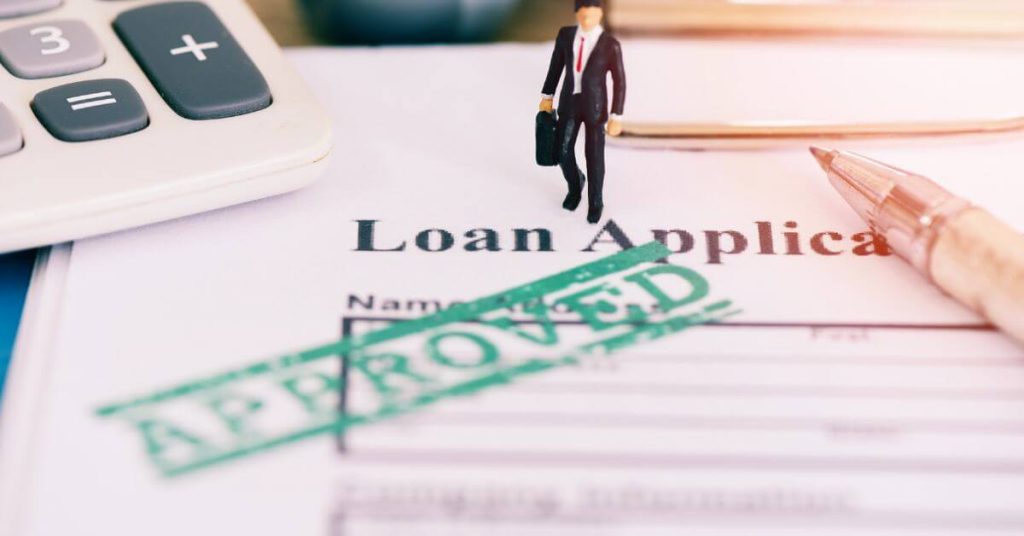Homeownership is a huge part of the American dream.
And what’s better than owning one home? Owning multiple homes! Guess what? FHA loans can be a great option to build your property empire.
But before you start building your property portfolio it’s important to understand the FHA mortgage limitations in place for homeowners of multiple homes.
In this article, we will explore the rules and regulations surrounding having multiple FHA loans so you can make the most of this valuable resource. Let’s dive in.
What is an FHA loan?
An FHA loan is a mortgage that is insured by the Federal Housing Administration, meaning that if you default on your loan, your lender is protected against financial loss.
FHA loans are popular among first-time homebuyers because they require a lower down payment (as low as 3.5%) and have more lenient credit score requirements than conventional loans.
Can You Get an FHA Loan Twice?
Luckily for you, the answer is yes. There are no restrictions on how many times you can apply for and receive an FHA loan.
That is providing you meet all requirements. However, there are limitations on how many FHA loans you can have at the same time.
The FHA allows borrowers to have only one FHA loan at a time, which means that you cannot use an FHA loan to purchase a second home or investment property while still owning your primary residence.
So, if you want to acquire another property using an FHA loan, you must first sell or refinance your existing home.
The requirements are the same for an FHA 203k loan. As long as you meet the eligibility requirements and can afford the additional monthly mortgage payments, you can apply for the loan.
In plain terms, if you have finished paying for your first home, it may be a great time to use an FHA loan to get your next home.
How Many Times Can You Get an FHA Loan?

As we have mentioned, there is no specific limit to the number of times you can get an FHA loan.
However, there are certain requirements you must meet each time you apply for an FHA loan, including credit score, debt-to-income ratio, and other criteria related to your financial situation.
Also remember that you cannot have more than one FHA loan at a time, except in certain circumstances, such as if you are relocating for work and need to keep your existing home as a rental property.
Can I Get Another FHA Loan If I Sell My House?
Yes, selling your house does not disqualify you from obtaining another FHA loan, as long as you meet the credit, income, and other requirements necessary to qualify for the new loan.
If you have an existing FHA loan and you sell your home, you may be able to transfer your FHA mortgage insurance to a new property. This can be beneficial if you plan to purchase a new home with an FHA loan, as you may be able to avoid paying for new mortgage insurance premiums.
However, it’s important to note that if you still have an outstanding balance on your existing FHA loan when you sell your home, you will need to pay off the remaining balance before you can obtain a new FHA loan.
Additionally, if you have any late payments or other negative marks on your credit report, this could impact your ability to qualify or how much you can qualify for a new FHA loan.
Can a Married Couple Get Two FHA Loans?
You may be wondering if you and your spouse can each get an FHA loan at the same time. Unfortunately, the answer will almost always be no.
In general, a married couple can only have one FHA loan at a time for their primary residence.
However, there are some limited circumstances where a married couple may be able to get a second FHA loan.
Let’s look at some circumstances where you may be able to have two FHA loans at the same time.
When Can You Have Two FHA Loans at the Same Time?

While it is generally not possible for you to have two FHA loans at the same time, there are some limited circumstances under which you may be able to obtain a second FHA loan while still having an existing FHA-insured mortgage.
Some of the exceptions include:
- Relocation: If you need to relocate for work or other qualifying reasons and want to keep your first home as a rental property, you may be able to obtain a second FHA loan to purchase your new primary residence. But remember, you will have to prove that you can comfortably afford both mortgages at the same time. You may also be required to move at least 100 miles away from your first FHA home.
- Increase in family size: If you are blessed with a new bundle of joy and suddenly find yourselves in need of a larger home to accommodate your expanded family, you may be able to obtain a second FHA loan if you can demonstrate that your current home no longer meets your needs.
- Vacating a jointly owned property: If you are currently on an FHA loan that you jointly own with a co-borrower, you may be able to obtain a second FHA loan for a new property if you can prove that you have vacated the jointly owned property and no longer have financial responsibility for it.
Second FHA Loan Requirements
If you want to acquire another property using an FHA loan, there are several requirements that you should keep in mind – most of which are the same for any FHA loan application.
Here are just a few:
- Sell Previous Home: You must first sell or refinance your existing home, or prove exceptional circumstances as indicated above.
- Credit Score: You must have a minimum credit score of 580 to be eligible for an FHA loan. However, some lenders may require a higher credit score.
- Debt-to-Income Ratio: You must have a debt-to-income ratio (DTI) of 43% or less, though some lenders may have stricter requirements. DTI is calculated by dividing your total monthly debt payments by your gross monthly income.
- Employment History: You must have a steady employment history, with at least two years of continuous employment.
- Occupancy Requirements: You must intend to use the new property as your primary residence.
It’s important to note that these requirements may vary by lender. For a second home in any of the locations we serve, we can help you to find the best deal.
How Does Having Multiple FHA Loans Affect Your Financial Standing?

Having multiple FHA loans can have both positive and negative effects on your financial standing, depending on your individual circumstances. Here are some potential effects to consider:
Positive effects
- Building Wealth: Owning multiple properties can be a way to build wealth over time, especially if you’re able to rent out one or more properties and generate additional income. FHA loans can be a great way to build this wealth.
- Diversification: Owning multiple properties can be a way to diversify your investment portfolio and spread out your risk.
- Appreciation: If your properties appreciate in value over time, you may be able to sell them for a profit or use the equity to purchase additional properties.
Negative effects
- Debt-to-Income Ratio: Having multiple FHA loans can increase your debt-to-income ratio, which is the amount of debt you have compared to your income. This can make it more difficult to qualify for additional loans in the future.
- Mortgage Insurance Premiums: FHA loans require borrowers to pay mortgage insurance premiums (MIP) for the life of the loan. If you have multiple FHA loans, your MIP payments may be higher, which can increase your monthly housing costs.
- Increased Risk to Credit Score: Your credit score can take a significant hit if you are late making your mortgage payments or if you default on your loan. The more FHA loans you have, the higher your risk of damaging your credit score with late payments or defaults – especially if you own more than one FHA loan at the same time.
Frequently Asked Questions
Can I get an FHA loan if I already own a home?
Yes, you can get an FHA loan if you already own a home. However, there are some restrictions on using FHA loans for subsequent home purchases.
If you have paid off your current house, you should be able to get an FHA loan as long as you meet the FHA loan requirements and the new FHA home is your primary residence.
If you still have an FHA loan on your home, you may not be allowed to get another FHA loan unless you qualify for one of the exceptions we have talked about like a growing family.
What is the highest FHA loan limit?
The highest FHA loan limit varies by location and is determined by the Federal Housing Administration (FHA). The highest FHA loan limit for a single-family home in the contiguous United States for 2023 is $1,089,300.
Check with your lender or the FHA to determine the specific loan limits for your area.
What is the FHA 100-mile rule?
The FHA 100-mile rule says that your second FHA home should be more than 100 miles from your first. The rule applies to borrowers who are using an FHA loan to purchase a new primary residence while retaining their existing primary residence as a second home or rental property.
It’s important to note that the 100-mile rule is not an official FHA guideline, but rather a recommendation made by some lenders and mortgage professionals so It’s always a good idea to consult with a lender to understand the specifics.
Are FHA Loans a Good Option for Owning Multiple Properties?
FHA loans can be a great option for owning multiple properties, but it’s important to weigh the pros and cons before making a decision.
On the positive side, owning multiple properties can help build wealth and diversify your investment portfolio over time. In addition, the flexible requirements of FHA loans make homeownership and this type of property investment possible for many.
However, having multiple FHA loans can also increase your debt-to-income ratio, result in higher mortgage insurance premiums, and pose a risk to your credit score if you are unable to make timely payments or default on your loans.
If you’re going to do it, be sure to have a qualified agent, like us, by your side to walk you through the process thoroughly and help you build the empire you dream of.
Give us a call, and we’d be happy to assist!






